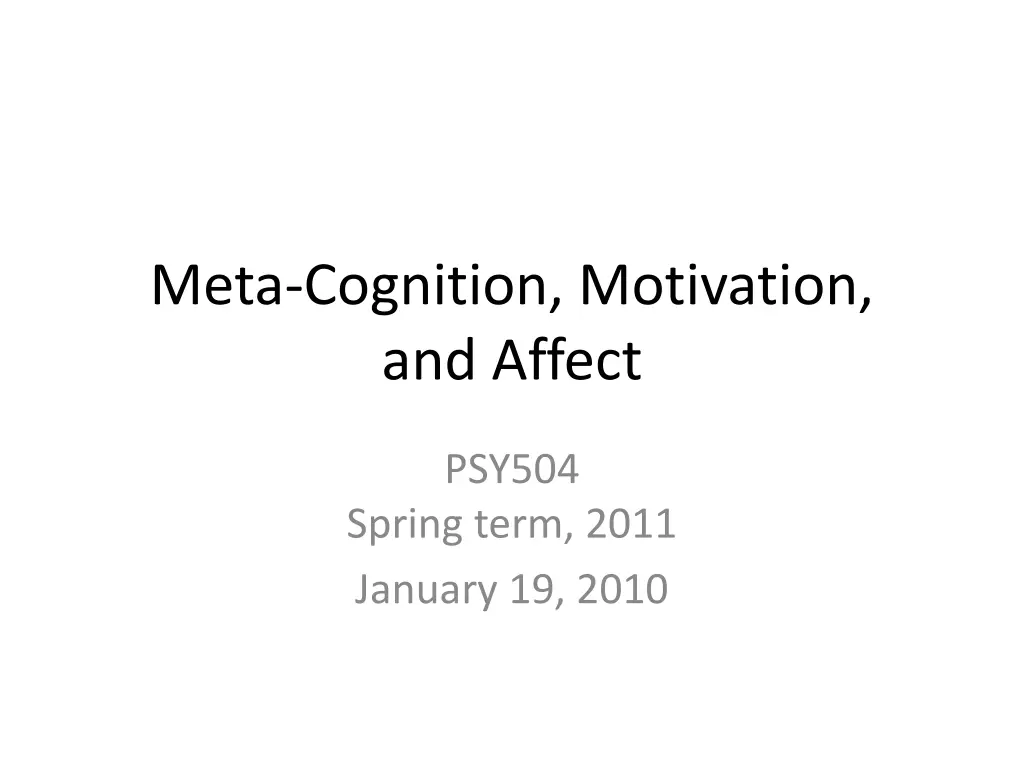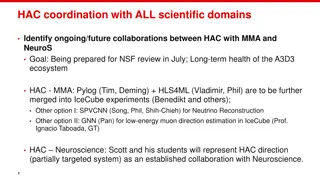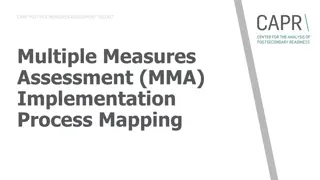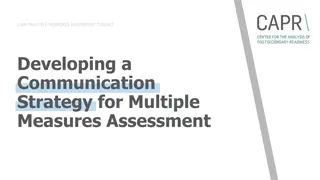
Understanding Meta-Cognition, Motivation, and Affect in Psychology
Explore the intersection of meta-cognition, motivation, and affect in the context of PSY504 course topics. Dive into models of MMA and discussions on rule changes to enhance learning. Discover how each model differs and the interconnected nature of cognitive and self-concept aspects.
Download Presentation

Please find below an Image/Link to download the presentation.
The content on the website is provided AS IS for your information and personal use only. It may not be sold, licensed, or shared on other websites without obtaining consent from the author. If you encounter any issues during the download, it is possible that the publisher has removed the file from their server.
You are allowed to download the files provided on this website for personal or commercial use, subject to the condition that they are used lawfully. All files are the property of their respective owners.
The content on the website is provided AS IS for your information and personal use only. It may not be sold, licensed, or shared on other websites without obtaining consent from the author.
E N D
Presentation Transcript
Meta-Cognition, Motivation, and Affect PSY504 Spring term, 2011 January 19, 2010
Rooms Rooms have now been scheduled for all Tuesday sessions See the schedule online Note that rooms vary on different Tuesdays
Topics Please look at the course schedule Who would like to teach which topics?
Topic List Help-Seeking, Planning, Metacognitive-SRL Scaffolding, Expectancy-Value Theories, Achievement Goals/Goal Orientation, Extrinsic/Intrinsic Motivation, Interest, Self-Efficacy, Attribution Theory, Self-Theories, Basic Emotions, Flow/Concentration/Joy/Delight, Frustration/Anxiety/Boredom, Affect and Achievement Goals, Affect Detection, Affective/Motivational Agents, Educational Games/Serious Games, Gaming the System, Off-Task Behavior/Carelesness, Procrastination, Drop-out
Brief Discussion Rule Change During this first portion of today s class I ll ask most of you to each present on something Only the person presenting will talk Clarification questions are OK, but no comments Save your comments for after this period (it won t be too long)
First Person Explain your model to the class
Second/Subsequent People Explain how your model differs from the previous models Focus on explaining what s different about your model, not on explaining your model in general
Everything in the outer boxes is interconnected Cog Self-Concept Self-efficacy Affect Interest Metacog Motivation Disengagement Strategic Behavior Valuation Goals Self-Regulation Latents Learning Off-task behav Procrastination Drop-Out Observables
A is above B if B is not strictly necessary for A to occur, and A is more important Learning Self-Concept Self-Efficacy Valuation Motivation Affect Goals Cognition Strategic Behavior Meta-Cognition Off-Task Behavior Procrastionation Disengagement Drop-out
Back to normal Everyone can now express themselves normally again Anyone have anything they ve been bursting to say for the last few minutes?
What were The key points of agreement?
What were The key points of disagreement?
Well revisit these issues A few times over the course of this semester, particularly in connection to Winne and Azevedo s models of self-regulated learning
Meta-cognition Coined by John Flavell
Definitions Last week, Adam successfully played the predict what is on Professor Baker s next slide game and came up with Cognition about cognition
Definitions What other definitions does Hacker introduce in this chapter?
Definitions Active monitoring and consequent regulation and orchestration of cognitive processes to achieve cognitive goals . (Hacker citing Flavell, 1976) Thoughts? Comments?
Definitions Hacker s Should include at least these notions: knowledge of one s knowledge, processes, and cognitive and affective states; and the ability to consciously and deliberately monitor and regulate one s knowledge, processes, and cognitive and affective states. Thoughts? Comments?
Components of meta-cognition (according to Flavell, 1979) Meta-cognitive knowledge knowledge about your tasks/goals/actions/experiences, or about someone else s Meta-cognitive experiences conscious cognitive or affective experiences that accompany thinking Meta-cognitive strategies strategies for accomplishing cognitive objectives (expressed in Flavell as separate goals and strategies)
Potential modifications Meta-cognitive knowledge knowledge about your tasks/goals/actions/experiences, or about someone else s
Potential modifications Meta-cognitive experiences conscious cognitive or affective experiences that accompany thinking Caution: What Flavell meant by affect might not be the same thing we ll talk about later in the semester
Potential modifications Meta-cognitive skills abilities for accomplishing meta-cognitive objectives
Can you give examples? Meta-cognitive knowledge Meta-cognitive experiences Meta-cognitive strategies/skills
Meta-cognitive processes Another way to look at meta-cognition is that it is a set of processes that interact with all three of these constructs (Paris & Winograd, 1990) Self-appraisal Self-monitoring Self-management/self-regulation
What are the implications Of looking at meta-cognition as processes Instead of as knowledge, experiences, strategies?
Meta-cognitive strategies you use Which meta-cognitive strategies do you regularly use in your academic life?
Is all meta-cognition equally useful? Are some meta-cognitive strategies more beneficial for learning and functioning than others? How could this be evaluated?
Next Class Monday, January 24 4pm-5:10pm Monitoring/Self-Assessment Wagoner, S.A. (1983) Comprehension Monitoring: What It Is and What We Know About It. Reading Research Quarterly, 18 (3), 328-346. Koriat, A. (1993) How Do We Know That We Know? The Accessibility Model of the Feeling of Knowing.<i>Psychological Review</i>, 100 (4), 609-639. Kimball, D.R., Metcalfe, J. (2003) Delaying judgments of learning affects memory, not metamemory. Memory & Cognition , 31 (6), 918-929.















